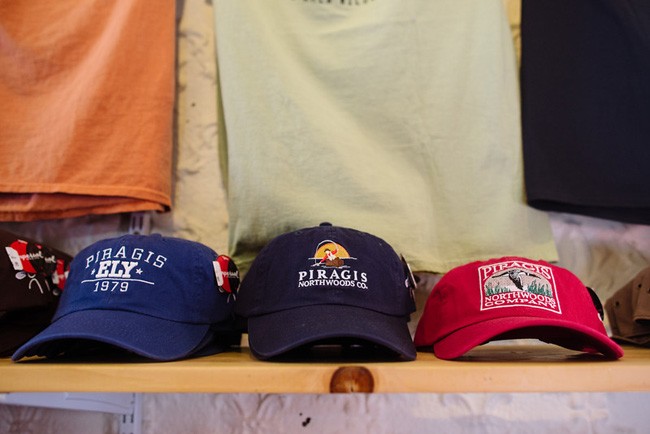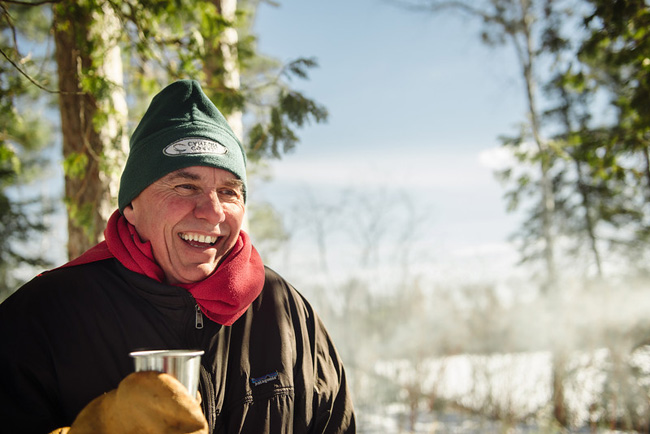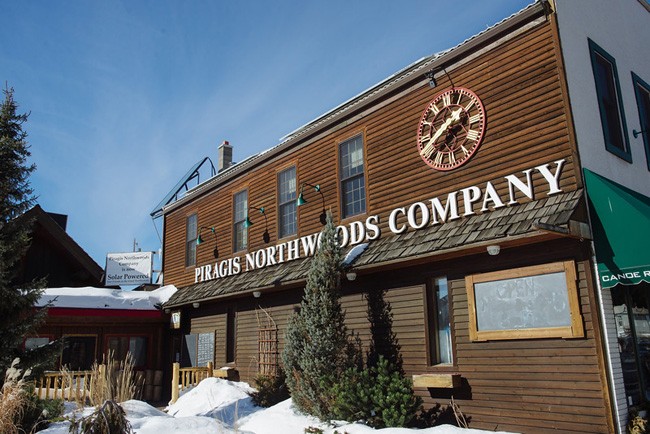
This story was sponsored by the Campaign to Save the Boundary Waters. It’s the fourth of a five-part series that will run on Heavy Table telling the story of Ely, its economy, and a special wilderness meal created by Chef J.D. Fratzke of The Strip Club Meat and Fish.
Anyone who has traveled in the Boundary Waters Canoe Area understands the importance of gear. The difference between a good trip and a great one can come down to a lighter paddle, or a more comfortable sleeping pad, or a better coffee maker. And the difference between a terrible trip and an enjoyable one can be a more-reliable headlamp, or a sturdier camp saw, or a more durable canoe.
Piragis Northwoods Company has been outfitting visitors for trips into the Boundary Waters since 1979. Founded by Steve and Nancy Piragis, the store harnessed an expanding interest in wilderness adventuring, turning a shoestring family operation into one of Ely’s most prominent wilderness outfitters.
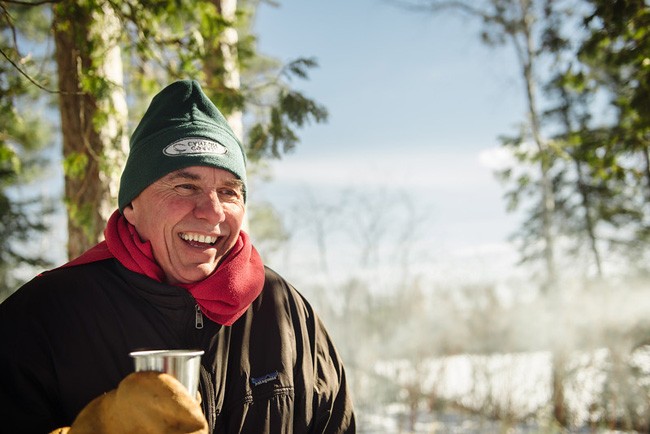
From Burning Wood to Paddling Kevlar
After arriving from the East Coast in the mid-’70s, the Piragis family got its start in business selling woodstoves out of the garage, at a time when interest in more traditional (and environmentally sustainable) methods of energy was beginning to rise.
“That kind of metamorphosed into selling canoes, which were a lot more fun and a lot lighter,” recalls Steve Piragis (above). “We also started to sell gear, and we got to know [naturalist and author] Sig Olson, who lived in town.”
Piragis Northwoods Company turned out to be in the right place at the time, but that wasn’t due to a master plan. “I don’t think it was that analytical, to tell you the truth — we were just lucky,” says Piragis. “There was a new law in 1978 that changed the Boundary Waters from being more motorized to being less motorized, and retailers in Ely really converted over to being canoeing only. We kind of jumped in at the right time — lighter gear, lighter canoes. We were the first guys in the area to sell and rent Kevlar canoes.”
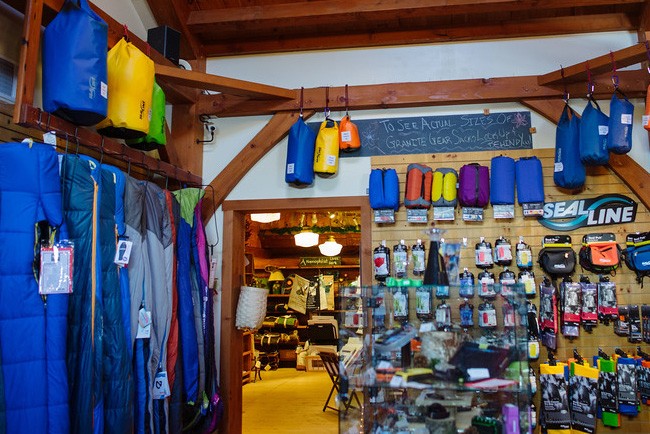
New Gear, Ever Evolving
A lot has changed over 36 years of outfitting, says Piragis, starting with the shift from aluminum to Kevlar canoes.
“Lighter is important in every way,” says Piragis. “Tents are lighter and more sophisticated. I think one of the biggest changes came in the ’80s. That was the [self-inflating] Therm-a-Rest Pad. Since then, that has been replaced by these very comfortable air mattresses that NEMO makes. They just pump up with your foot. They weigh the same, but they’re three inches thick, and they’re much more comfortable than a Therm-a-Rest.”
The constantly changing nature of gear illustrates why you need to keep current to stay in business, says Piragis. “There’s always somebody coming up with something better, and that’s what keeps our business kicking along.”
Piragis Outfitters carries this mindset into how they outfit expeditions, making sure to use new equipment, which is then sold at the end of the year.
“I think we’re the only outfitter that does that,” says Piragis. “We figured out that a group of four going out on a canoe trip that we outfit with all the gear we have [uses] about $20,000 worth of gear. It’s all brand new, and we sell it all at the end of the season — we’ve got good deals on used gear, and our customers get the best.”
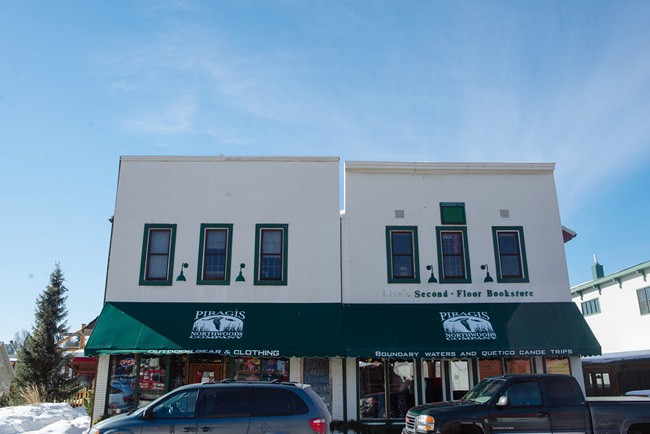
A Small Town on the Move, and A Timeless Landscape Threatened
Ely’s economy is prosperous, particularly in the context of Iron Range towns, many of which have suffered from the boom-and-bust cycles typical of resource extraction industries. Piragis has had more than his share of impact on that prosperity — not just with the outfitting business, but also with his family’s co-founding of the Chocolate Moose, one of the first local restaurants to bring scratch restaurant cooking and finer dining to the Ely area when it was founded in 1985.
“I think the Chocolate Moose really started [the finer dining trend] back in the mid-’80s,” says Piragis. “Nancy introduced the first quiche in town, and nobody knew what it was. And homemade soups … a lot of the restaurants still buy everything premade but there are also quite a few restaurants doing it all from scratch, like they should. That’s happened in the last 20 years.”
But all of Ely’s current prosperity, says Piragis, is premised on its role as gateway to an unspoiled natural environment, unique in the world. The advent of sulfide-ore copper mining could change everything.
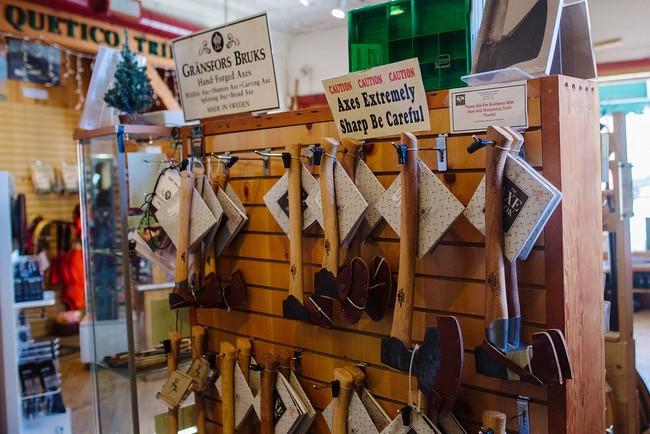
“That’s our big fear,” says Piragis about the prospect of mining within the watershed of the Boundary Waters. “Sulfide mining, wherever it has taken root, has always polluted the watershed around it. Even in desert locations like Arizona, where they get a tenth of the rain that we do, pollution is rampant around sulfide ore mines.”
The pollution would change the wilderness, and that change would devastate the town, says Piragis.
“Our fear is that if sulfide ore mining were to happen in our watershed, the pollution would damage, if not destroy, our business,” he says. “We feel good about our business, that we support so many families here — we have 18 full time employees and 50 here in the summertime. It’s really important to us that we maintain a sustainable economy and a pure and healthy pristine wilderness.”
Even the implication of mining could hurt the community, Piragis argues, changing its identity from romantic “end of the road” to just another mining town caked in grit and pollution.
“The two don’t seem to go together at all — the wilderness experience and toxic industry,” say Piragis. “We want to maintain what we’ve built over the 36 years. We’ve worked hard to get here, and we don’t want to lose it. And we want Ely to prosper, and we don’t want Ely to be dependent on a boom and bust industry.”
Piragis Northwoods Company, 105 N Central Ave, Ely, MN 55731, 218.365.6745
